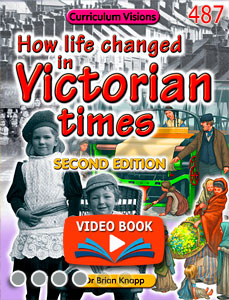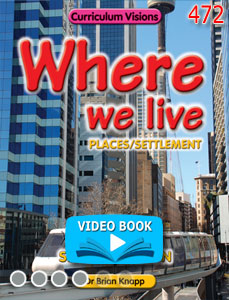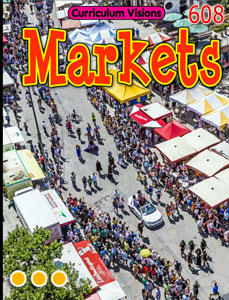Shopping is the business of selling and buying. If you thought it was just buying, then think of all the people who serve, who bring the goods to the shops and so on. It is the biggest activity that most people do.
Shopping is a number of things. It is about getting essentials. It is sometimes about buying treats, and it is often about having a good time as well.
The earliest shopping was simple exchange of goods. We call it bartering. I have something that you want, perhaps a goat, and you swap it for something of yours that I want, perhaps a spade.
But this is really very inefficient. I have to go around finding things that I want in many different places and then seeing if the people want to exchange them for what I have.
The easiest way around this is to use money. Money is quite old, but not as old as you might think, or at least not in the form of coins. Paper money is even more recent. The Vikings, for example, used to wear silver armbands so they could chop a piece off as a form of money when they wanted something.
The only time money works is when we know we can always use it. That means banks. Banks are part of shopping. They make shopping possible.
So if we need things, others have them, and we now have a way of paying for what we want in money instead of in things, it makes sense for someone to gather lots of things together and sell them. That is what merchants have done down the ages. They went and found lots of cloth, for example, brought it back to their workshops and storehouses and let other people buy it in smaller amounts. For money. And they made a profit at the same time.
Now if merchants want to sell things, they have to think of the best place to be. That is usually somewhere that lots of people can get to, for example, a town centre. So shops tend to be where roads meet, or along roads that people use a lot.
It's not quite the same for essential items like vegetables and bread. Everyone needs those, and they are perishable. Which is why it is possible for there to be neighbourhood grocery shops.
And then there are the things we don't really want, but like to have. Just think of what you really need: food, basic clothes, furniture, a home, something to keep it warm. You could wear your clothes until they wore out. You could live in a simple home. But many people don't. In fact, they earn far more than they need just to have a simple life. So today the main things people spend their money on are things they don't really need: fashion accessories, mobile phones, computer games, branded sportswear.
Now, as you don't need these things, you have to be tempted to buy them, and that has what has changed shopping. To make you want to shop, you have to be entertained. Things have to be presented in a way that makes you want to shop for them. That is what modern shopping malls in particular try to provide. It would be hard to find anything in a shopping mall that was essential, so they have to make shopping into an entertainment by mixing shopping with theatres, restaurants, and funfairs. Now all of those are difficult to fit into a city centre, which is why so many of them are outside the old centres of towns.
Of course, all of this is changing again. We now buy things we want on the Internet, so our shopping has gone private. Because we can get things delivered, we don't much care where they are, so long as they are only a click away. In fact these big stores are just warehouses placed near motorway junctions. We don't care because we never see them. Instead of shopping in a city centre, we are likely to shop more and more from our own homes, or while on the bus using our mobile phones. Shopping will change a lot in the years to come.







